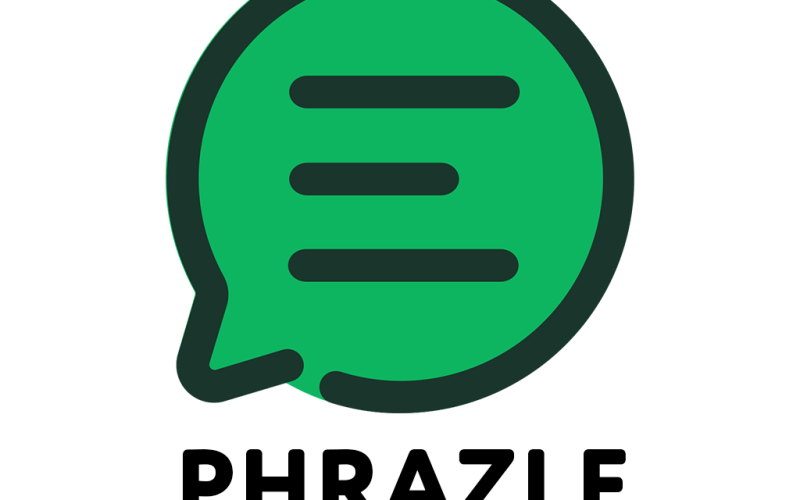Introduction
Every morning, before the day begins to demand too much, there’s a quiet ritual: coffee, a blank screen, and a puzzle. Not just any puzzle Phrazle. It sits there with its empty boxes, waiting like an unfinished thought, daring you to complete it.
But what’s most surprising is how communal it feels. Even though you’re playing alone, there’s a shared experience in figuring out the day’s phrase. You can almost hear other people thinking the same way that little gasp when the solution finally clicks. It’s a quiet connection, but a real one.
There’s something disarmingly gentle about Phrazle. No timers, no pressure, no aggressive pop-ups. Just the calm rhythm of words. You make a guess, watch the colors bloom, and then pause. The mind wanders through half-remembered sayings, echoes of language you didn’t even know you’d kept.
It’s like listening to an old friend whisper from the back of your mind
“Don’t count your chickens…”
“Better late than never…”
“Curiosity killed the cat…”
Phrases we grew up hearing, tossed casually into conversations, now returning like fragments of poetry. Phrazle isn’t just a game of logic; it’s a bridge to memory. Each solved puzzle feels like rediscovering something you forgot you loved — the texture of language, the rhythm of idioms, the comfort of words that have survived generations.
And then there’s the silence. The good kind. The kind that feels full. Between each guess, the world slows down. Notifications fade, the hum of the day recedes, and all that’s left is you and a handful of letters that somehow mean everything and nothing at once.
Phrazle doesn’t chase you
It doesn’t measure your worth in streaks or achievements. It waits. It trusts that you’ll return when you’re ready — and you do, because there’s something magnetic about its simplicity. Maybe that’s what makes it beautiful. It’s not a competition; it’s an invitation. A reminder that thinking — really thinking — can still be a joy. That the act of searching for meaning, of connecting one word to another, can feel like meditation in disguise.
In a world obsessed with speed, Phrazle is unhurried.
In a world obsessed with noise, Phrazle is quiet.
And in a world where everything is designed to be consumed and forgotten, Phrazle gives you something to remember. When you finally uncover the phrase, there’s no explosion of sound, no confetti. Just a single moment — small, personal, perfect. And for that moment, you remember what it feels like to be fully present.
How satisfying it is to get the answer
When a friend first sent me the link to Phrazle, I rolled my eyes. Another word game? I’d already played Wordle, Connections, Quordle, and half a dozen others that had taken over my lunch breaks. But something about Phrazle caught my attention — maybe the way it quietly challenged not just my vocabulary, but my memory and intuition, too.
Unlike other daily puzzles, Phrazle doesn’t just ask you to find words. It asks you to find meaning. Each puzzle hides a familiar phrase or saying, and somehow, every time I solve one, I feel a little spark of recognition — that “ohhh right!” moment that’s half nostalgia, half pride. Every once in a while, a small, quiet game slips through the noise of the internet and reminds us that not everything needs to be loud to be brilliant. Phrazle is one of those games.
At first glance, it looks simple — guess the hidden phrase, use logic and intuition, and hope your letters land in the right spots. But after a few rounds, it becomes clear that Phrazle is doing something more subtle. It’s not just testing your brain; it’s reconnecting you to the language that lives inside it. Each solved puzzle feels like uncovering a piece of cultural DNA — the sayings, idioms, and expressions we’ve grown up hearing but rarely stop to think about. It’s like taking a short, daily trip through the landscape of everyday wisdom.
What surprised me most
It’s how calming the whole experience feels. There’s no ticking clock. No pressure to post your score. No fake dopamine fireworks when you win. Just quiet focus — you, the letters, and the slow unfolding of something that’s been there all along. Phrazle has become my five-minute meditation. When I’m between tasks or need a mental reset, I open it up. The world slows down. I type, delete, guess again. Sometimes I win quickly; sometimes it takes a while. Either way, it feels good.
And it’s not just me. I’ve started noticing how many people around me play it during their coffee breaks or bus rides. It’s the kind of game that doesn’t scream for attention — it earns it, gently. In a world of apps shouting for more time, Phrazle gives you permission to take less. To breathe. To think. To play with words for the sake of play. So yeah, I’ll admit it: I’m hooked. But not in the usual “can’t stop scrolling” way. It’s the kind of hooked that feels healthy — like stretching your brain before diving back into the noise of the day.If you haven’t tried Phrazle yet, give it a shot. You might just find your new favorite five-minute escape, too.
It’s a quiet connection
In a world of endless scrolling and empty notifications, Phrazle offers something beautifully human: attention, memory, and curiosity. You can’t rush it. You can’t brute-force it. You have to sit with it, think, and let the answer come to you — like a conversation with the language itself.
Maybe that’s why it’s become part of my daily rhythm. Morning coffee, a few guesses, and that small spark of recognition when the phrase appears. It’s not about winning. It’s about remembering — that words still matter, and that sometimes, the smallest games can say the most.












